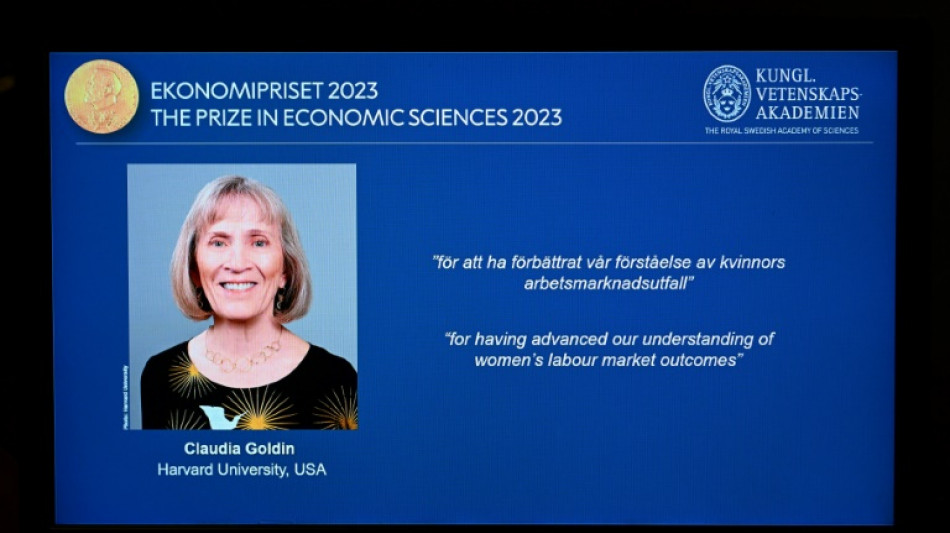
-
 Putin evokes WWII victory to rally Russia behind Ukraine offensive
Putin evokes WWII victory to rally Russia behind Ukraine offensive
-
China exports beat forecasts ahead of US tariff talks

-
 Leo XIV, the 'Latin Yankee', to celebrate first mass as pope
Leo XIV, the 'Latin Yankee', to celebrate first mass as pope
-
Most stocks lifted by hopes for US-China talks after UK deal

-
 IPL suspended indefinitely over India-Pakistan conflict: reports
IPL suspended indefinitely over India-Pakistan conflict: reports
-
German lender Commerzbank's profits jump as it fends off UniCredit

-
 Rare bone-eroding disease ruining lives in Kenya's poorest county
Rare bone-eroding disease ruining lives in Kenya's poorest county
-
India says repulsed fresh Pakistan attacks as de-escalation efforts grow

-
 Zhao's historic snooker title sparks talk of China world domination
Zhao's historic snooker title sparks talk of China world domination
-
'High expectations': EU looks to Merz for boost in tough times

-
 Poisoned guests rarely invited before deadly mushroom lunch, Australia trial hears
Poisoned guests rarely invited before deadly mushroom lunch, Australia trial hears
-
China sales to US slump even as exports beat forecasts

-
 Indian cricket to make 'final decision' on IPL over Pakistan conflict
Indian cricket to make 'final decision' on IPL over Pakistan conflict
-
Dethroned Bundesliga champions Leverkusen face uncertain future

-
 China can play hardball at looming trade talks with US: analysts
China can play hardball at looming trade talks with US: analysts
-
French monuments in trouble while PSG prepare for Champions League final

-
 Newcastle face Chelsea in top five showdown, Alexander-Arnold in spotlight
Newcastle face Chelsea in top five showdown, Alexander-Arnold in spotlight
-
Flick's Barca must show 'hunger' in crunch Liga Clasico

-
 Clasico the last chance saloon for Ancelotti's Real Madrid
Clasico the last chance saloon for Ancelotti's Real Madrid
-
Timberwolves overpower Warriors to level series

-
 Chinese fabric exporters anxious for US trade patch-up
Chinese fabric exporters anxious for US trade patch-up
-
Putin gears up to host world leaders at lavish army parade

-
 Nearing 100, Malaysian ex-PM Mahathir blasts 'old world' Trump
Nearing 100, Malaysian ex-PM Mahathir blasts 'old world' Trump
-
Leo XIV, first US pope, to celebrate first mass as pontiff

-
 Asian stocks lifted by hopes for US-China talks after UK deal
Asian stocks lifted by hopes for US-China talks after UK deal
-
Former head of crypto platform Celsius sentenced 12 years

-
 Ex-model testifies in NY court that Weinstein assaulted her at 16
Ex-model testifies in NY court that Weinstein assaulted her at 16
-
Nestlé and OMP Showcase Approach to Future-Ready Supply Chain at Gartner Supply Chain Symposium/Xpo in Barcelona

-
 Genflow Biosciences PLC Announces Share Subscription, Director's Dealing and Update
Genflow Biosciences PLC Announces Share Subscription, Director's Dealing and Update
-
Argo Blockchain PLC Announces 2024 Annual Results and Restoration of Listing

-
 'Great honor': world leaders welcome first US pope
'Great honor': world leaders welcome first US pope
-
Pacquiao to un-retire and fight Barrios for welterweight title: report

-
 Trump unveils UK trade deal, first since tariff blitz
Trump unveils UK trade deal, first since tariff blitz
-
Man Utd one step away from Europa League glory despite horror season

-
 Jeeno shines on greens to grab LPGA lead at Liberty National
Jeeno shines on greens to grab LPGA lead at Liberty National
-
Mitchell fires PGA career-low 61 to grab Truist lead

-
 AI tool uses selfies to predict biological age and cancer survival
AI tool uses selfies to predict biological age and cancer survival
-
Extremely online new pope unafraid to talk politics

-
 Postecoglou hits back as Spurs reach Europa League final
Postecoglou hits back as Spurs reach Europa League final
-
Chelsea ease into Conference League final against Betis

-
 Pope Leo XIV: Soft-spoken American spent decades amid poor in Peru
Pope Leo XIV: Soft-spoken American spent decades amid poor in Peru
-
First US pope shared articles critical of Trump, Vance

-
 'Inexcusable' - NBA champs Boston in trouble after letting big leads slip
'Inexcusable' - NBA champs Boston in trouble after letting big leads slip
-
US automakers blast Trump's UK trade deal

-
 Stocks mostly rise as US-UK unveil trade deal
Stocks mostly rise as US-UK unveil trade deal
-
Trump presses Russia for unconditional 30-day Ukraine ceasefire

-
 Anything but Europa League glory 'means nothing' for Man Utd: Amorim
Anything but Europa League glory 'means nothing' for Man Utd: Amorim
-
'Inexcuseable' - NBA champs Boston in trouble after letting big leads slip

-
 Pope Leo 'fell in love with Peru'and ceviche: Peru bishop
Pope Leo 'fell in love with Peru'and ceviche: Peru bishop
-
Pakistan's T20 cricket league moved to UAE over India conflict


Claudia Goldin: Nobel-winning sleuth of the gender pay gap
Claudia Goldin has long thought of herself as a kind of detective within economics, employing tools across academic disciplines in a quest to examine how women fit into the workforce.
On Monday, Goldin, the first woman to be tenured at Harvard University's economics department, attained the "dismal science" most exalted honour: the Nobel Prize for Economics.
Reached by telephone, Goldin told AFP the Nobel is a "very important prize, not just for me, but for the many people who work in this field and who are trying to understand why there is so much change, but there are still large differences" in pay.
In her sleuthing, Goldin, 77, has sought to reveal the reasons for the long-standing gender pay gap, including the challenges women have encountered in balancing family and professional responsibilities since the early twentieth century.
Goldin has focused on five periods: the 1900-1920 period when the few women who garnered college degrees had to choose between work and family, followed by the 1920-1940 phase when women left the workforce and started families during the Great Depression.
In the years after World War II through to about 1960, women were discouraged from entering the workforce instead of raising families. But their daughters, raised in the 1970s and 1980s, benefited from the birth control pill, with more women choosing careers and more than a quarter not having children.
The most recent generation of women is still navigating these dynamics, benefiting from evolving technology that has permitted greater flexibility on when to have children, but still confronting a grinding pay gap.
In her 2021 book, "Career and family: women's century-long journey towards equity," Goldin explored the effect of what she termed "greedy work" -- jobs with inflexible or unpredictable schedules that pay better.
Through her research, Goldin determined that women were more likely to abandon such jobs, while men are more likely to be enticed by the higher pay.
"Under these conditions, women will shift to a firm with less demanding hours or leave the workforce," Goldin said in a 2021 interview with Harvard Business Review.
- 'Neglected' subject -
Goldin described her unorthodox approach in an autobiographical essay for a 1998 book on economists at work.
"There has often been no agenda or program, no particular theory that must be followed," she wrote. "Yet the subconscious produces nagging questions."
In the years after graduate school, Goldin focused initially on the economic history of the South after the Civil War.
But around 1980, Goldin began to "realise that something was missing" from the study of economics: the wife and mother.
"I neglected her because the sources had.
"Women were in the data when young and single and often when widowed," she wrote. "But their stories were faintly heard after they married, for they were often not producing goods and services in sectors that were, or would be, part of (gross national product)."
Goldin's pioneering approach included launching in 2014 undergraduate women in economics program, an initiative to encourage more female economics major.
Born in the Bronx, New York in 1946, Golden was initially fascinated by archeology and the mummies at the New York's Museum of Natural History.
When she entered Cornell University, Goldin planned to study microbiology, but soon shifted ground after taking a course on industrial organisation with economist Alfred Kahn.
Goldin is married to fellow Harvard economist Larry Katz, with the two sharing a passion for bird watching and Pika, a 13-year-old Golden Retriever whose exploits are chronicled on her web page at Harvard.
Goldin told AFP she still thinks of herself as a detective, someone who when faced with a problem, knows "I just have to find the facts, figure it out and I'll solve the problem."
F.Pedersen--AMWN

